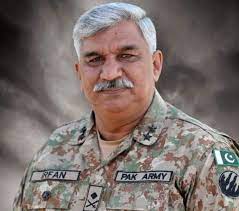Thousands of Afghan refugees returning to Afghanistan from Pakistan and facing an uncertain future in a country many left decades ago.
After almost 40 years of war in Afghanistan, Pakistan has some 1.5 million registered refugees, one of the largest such populations in the world, according to the United Nations refugee agency (UNHCR). More than a million others are estimated to live there unregistered.

Islamabad, which announced new repatriation plans last year, has stepped up pressure to send people back and numbers have risen sharply in recent months as Afghan-Indian relations strengthened and those between India and Pakistan soured.
“We returned home after people and police in Pakistan started harassing us. They were harassing us day and night and that forced us to return home. They were raiding Afghan homes and giving us a 10 to 20 days notice to leave. They were taking us to police stations and we had to pay 4,000 or 5,000 Pakistani rupees,” an reuturning refuge said.
Born to refugee parents in the northern Pakistani town of Mansehra, he never gained citizenship but was always considered an Afghan, something which began to count against him as local resentment grew over Afghanistan’s deepening ties with India.

Pakistani officials deny there has been any systematic harassment of Afghans living in Pakistan and say their country has demonstrated great generosity to the refugee population, despite severe economic problems of its own.
The United Nations provides $400 a person in emergency help as well as medical and other assistance including mine awareness training for people returning to a country awash with unexploded ordnance. But longer term reintegration into a country many never knew as home may be more difficult.
Maya Ameratunga, director of UNHCR’s Country office in Kabul said that that one of the key issues is finding a place to live, as some aren’t able to go and live with their relatives.
“So unfortunately what we are seeing is people becoming displaced upon return to Afghanistan. That means they may go and live in a spotter settlement somewhere while they try to find a job, which is another challenge,” she said.
The spike in the number of returnees has, however, moved in step with escalating friction between Afghanistan and Pakistan, which flared into brief clashes at the Torkham border crossing in June.

A series of economic and political accords with India in recent months and the fanfare around the completion of the Indian-financed Salma dam in western Afghanistan in June has also weighed on relations.
According to UNHCR figures, the number of assisted returns jumped from 1,433 in June to 11,416 in July and 60,743 in August. More than 90,000 have been returned to Afghanistan so far this year, almost all from Pakistan, and the number is expected to pass 220,000 for the year



